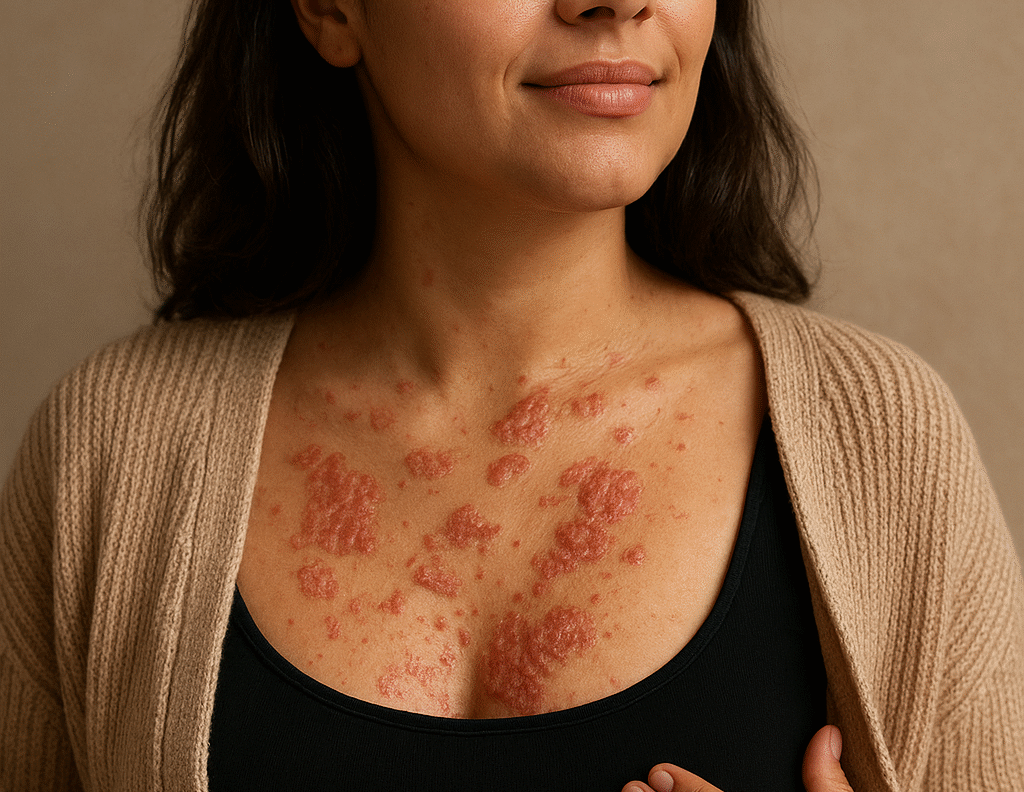My skin taught me strength: Ex-BBB25 winner Renata Saldanha opens up about her battle with psoriasis and emotional healing

My skin taught me strength: Ex-BBB25 winner Renata Saldanha opens up about her battle with psoriasis and emotional healing
When Big Brother Brasil 25 champion Renata Saldanha takes off her makeup, she reveals more than flawless beauty — she tells a story of strength, pain, and healing. In an emotional interview with GShow, Renata opened up for the first time about living with psoriasis, a chronic inflammatory skin disease that has shaped her confidence and resilience since childhood.
“I’ve always had sensitive skin and recurring irritations in areas like my knees, elbows, and neck,” she recalled. “As a child, doctors thought it was just eczema, but during dance rehearsals in Fortaleza, where I trained for hours in the heat, it would get worse. I thought it was just part of who I was.”
That changed in 2017 when an allergic reaction to a hair dye left her scalp severely burned and her body covered in hives. “It was terrifying,” she said. “After weeks of pain, a dermatologist ran tests and told me, ‘You’re having a psoriasis flare-up.’ Everything suddenly made sense.”
Psoriasis, often misunderstood as a cosmetic issue, is an autoimmune condition that accelerates the skin’s cell turnover, causing red, scaly patches and intense itching. The disease, which affects millions globally, often flares during periods of stress, emotional turmoil, or exposure to triggers such as certain foods and heat.
Renata said the condition has taught her to prioritize balance — physically, emotionally, and spiritually. “I’ve learned to listen to my body,” she explained. “When I’m stressed or eating poorly, my skin reacts immediately. Maintaining a healthy routine and focusing on self-love has been my greatest medicine.”
Dermatologist Dr. Giana Campoi explained that psoriasis occurs when the immune system mistakenly speeds up skin regeneration, leading to inflammation and scaling. “Normally, skin cells renew every 40 days,” she said. “In psoriasis, that process happens in 10 to 15 days, causing redness, itching, and flaking.”
She emphasized that emotional stress is one of the strongest triggers: “Anxiety and stress are deeply connected to skin conditions. Managing these factors is essential for patients to live well with psoriasis.”
Across Brazil, roughly 3 to 5 million people — about 2.5% of the population — live with psoriasis, according to the Brazilian Society of Dermatology. Though the disease has no cure, modern treatments, including topical creams, oral medications, and biological therapies, help manage symptoms and reduce flare-ups.
Dr. Raquel Mazzotti, a dermatologist at Ipesaúde, urged patients not to lose hope: “Psoriasis is not contagious and can be controlled. With medical supervision, we can greatly reduce skin inflammation and improve quality of life.”
As the world marks World Psoriasis Day on October 29, Renata’s story stands as a reminder that beauty is not about perfection — it’s about perseverance. “My skin tells my story,” she said softly. “And I’ve learned that every mark is a sign that I survived.”
FAQs
Q1: What exactly is psoriasis?
Psoriasis is a chronic autoimmune condition that speeds up skin cell growth, causing red, scaly, and itchy patches.
Q2: Is psoriasis contagious?
No. Psoriasis is not contagious — it cannot be spread through touch or proximity.
Q3: Can stress worsen psoriasis?
Yes. Emotional stress and anxiety are major triggers for flare-ups.
Q4: Is there a cure for psoriasis?
There is currently no cure, but treatment can control symptoms and prevent severe outbreaks.
Q5: How can psoriasis patients improve their quality of life?
By following medical advice, managing stress, maintaining a healthy diet, and avoiding triggers such as alcohol and smoking.

